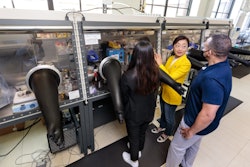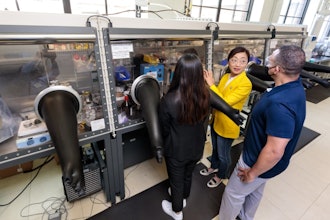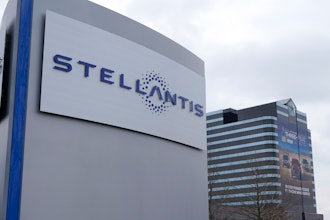Republican Gov. Jan Brewer, trying to turn away a general election challenge by Democratic Attorney General Terry Goddard, has moved to stake out high ground on an issue of concern to many voters: the ailing Arizona economy.
Brewer does that partly by regularly taking credit for business expansions and relocations that place new jobs in Arizona.
"Since becoming your governor, I have secured 7,000 high-value jobs and more than $2 billion in capital investment," she said in a Sept. 8 press release announcing her creation of a rural business advisory council.
Brewer aides on Thursday produced a two-page list of 34 projects totaling 7,205 jobs in response to a request by The Associated Press for documentation of her claim.
The list was updated with a California-based company's announcement that day of its decision to place a 350-job plant in Phoenix to design and manufacture power equipment for renewable energy suppliers.
Examination of that company's decision indicates Brewer had a prominent role in Power-One's decision to pick Arizona for the project but other individuals and circumstances also were key factors.
Brewer said she met with Power-One executives, and the Greater Phoenix Economic Council's chairman said Brewer's hands-on approach was instrumental in successfully winning the Power-One project as well as other business expansions and relocations.
"She's led the effort. She should get 100 percent credit. Without her leadership, we couldn't do it," said Michael Bidwill, GPECT chairman and president of the Arizona Cardinals football team.
Richard Thompson, Power-One's president and chief executive, credited the "great economic environment by the governor and the mayor," referring to Phoenix Mayor Phil Gordon. But he also cited Arizona State University's engineering program and the presence in Arizona of many of the company's customers.
Thompson said the favorable economic environment includes tax credits now available under a 2009 law that Arizona enacted to attract renewable energy companies, particularly those in the solar industry.
It should be noted that solar energy companies are to a large degree attracted to Arizona by its many days of sunshine, something outside of Brewer's control.
The 2009 renewable-energy law has been cited by economic development officials as a strong incentive for companies considering Arizona for projects, and Brewer said during a Nov. 11 ceremonial signing of the renewable energy legislation that it was "really a keystone to what I have long been advocating."
But passage of the 2009 was clearly a collaborative effort by lawmakers and others. Five Republicans sponsored the bill, and it drew bipartisan support in both legislative chambers as backers overcome resistance from other lawmakers, mainly Republicans.
There is some dispute over Brewer's role in passage of the 2009 legislation.
A lobbyist for Brewer's Department of Commerce was one of many individuals who registered support for the bill. Other supporters included city officials, business leaders and solar-energy advocates.
Rep. Chad Campbell, a Phoenix Democrat who helped work on the 2009 bill, said Brewer "had nothing to do with that piece of legislation" and doesn't deserve credit for its passage.
Lawmakers, not Brewer, were responsible for the bill reaching the governor's desk, Campbell said.
The bill was drafted at the behest of economic development backers and formally introduced in the Legislature before Brewer became governor in January 2009, said Sen. Barbara Leff, a Paradise Valley Republican who was the bill's chief sponsor.
However, Brewer and her administration provided important support for the bill late in the 2009 session after an embargo on non-budget bills was lifted, Leff said. "She was very supportive, which really helped."






















